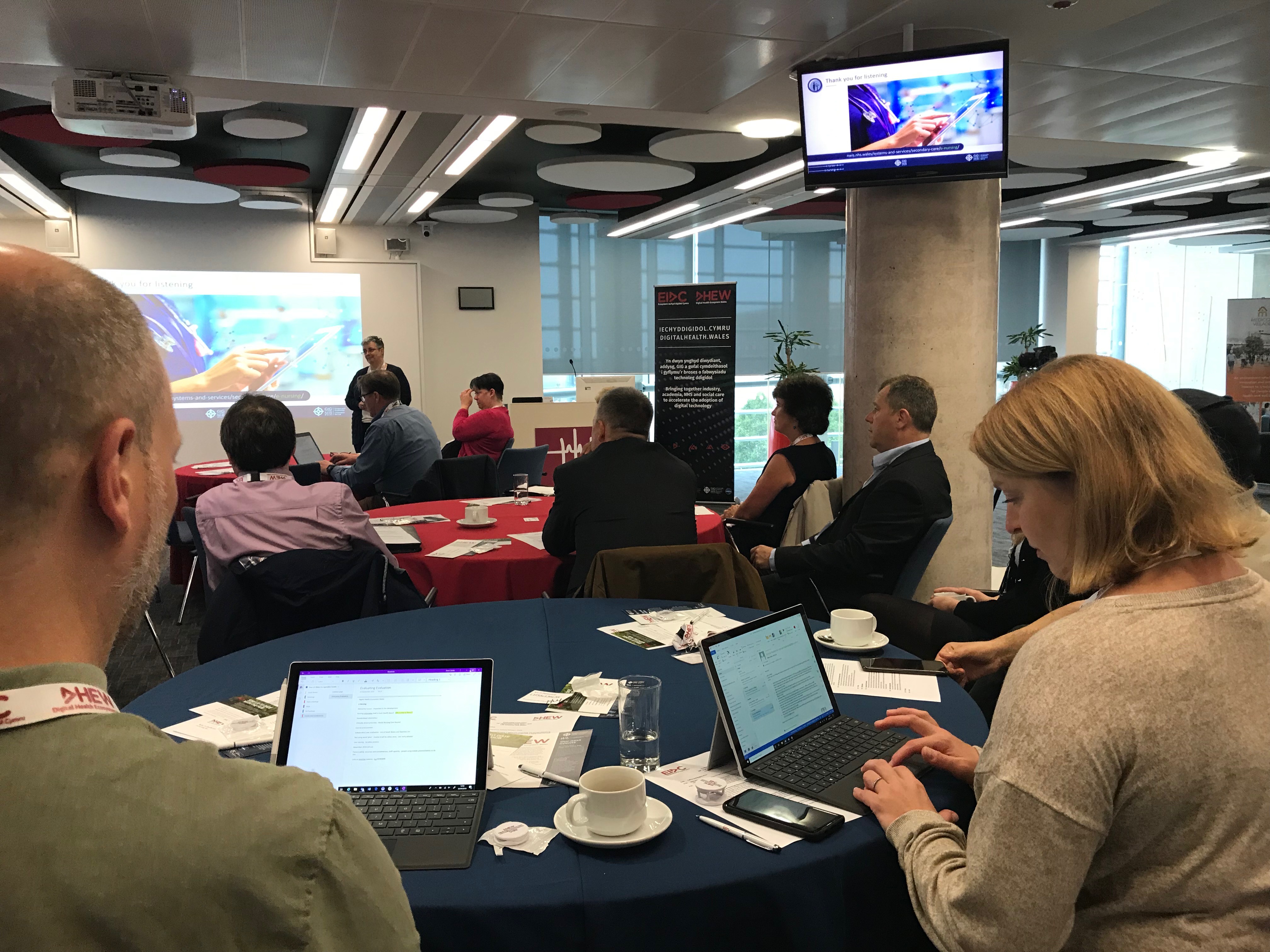DHEW welcomed a wide range of Ecosystem partners from NHS, social care, industry and academia to the Life Sciences Hub for their ‘Evaluating Evaluation’ event on Thursday 26th September 2019.

The aim of the event was to explore what good evaluation of digital healthcare technologies looks like and to help us all understand what evidence we should be gathering to demonstrate effectiveness and value of a product or service. We had great speakers talking about their projects and how they were (or are being) evaluated.
First up Fran Beadle, National Clinical Informatics Lead (Nursing) NWIS talked us through the journey of delivering e-Nursing. Through this project, nursing is being transformed to create a digital way of working. The current practice of recording and keeping paper records has become a burden and is taking front line staff away from care activities. NWIS is working with nurses across all Health Boards to produce digital nursing documents that follow a patient through their healthcare journey. Fran walked us through the various milestones of the project and the lessons learnt along the way (involve the users from day 1!) and it was great to hear that e-Nursing will be available for national roll out in November 2019.
Next, we talked about a DHEW project, tracking assets at the Royal Glamorgan Hospital. Rob Salter (Cwm Taf Morgannwg UHB), Sue Rawlings and Pauline Heffernan (RHCS) discussed the challenges of evaluating the project and shared some of the early results and issues raised. For example, the team spoke about not being able to track beds once they’re in for repair. The ability to know when a bed is available for use again or still in the repair bay is extremely valuable, and the team are working on how this can feed in to the project.
James Griffiths, Senior Value Based Procurement Project Manager, NHS Wales Shared Services, also joined us to present on the increasing importance of evidence within Value Based Procurement and how it will change how we evidence and evaluation projects. For example, was hearing aids. Users qualify for free batteries for life and have to have an outpatient’s appointment. A new procurement based on price did succeed in cutting the price of hearing aids – but battery life was halved, requiring twice as many outpatient visits so didn’t save money overall. By assessing the value, measuring what matters and looking at the value of outcomes to patients over the monetary saving cost, this issue would not have existed.
To bring the event to a close David Jarrom, from Health Technology Wales presented an update on Health Technology Wales and the most recent call for topics. He also talked through how HTW were adopting the NICE Evidence Standards Framework for Digital Healthcare Technologies. David took us through the framework and explained the types and levels of evidence outlined within it, using the earlier projects as good examples.
All presentations from the event can be found here:
- David Jarrom Presentation
- Fran Beadle Presentation
- James Griffiths Presentation
- Pauline Heffernan and Sue Rawlings Presentation
Are you signed up to receive our newsletter?

